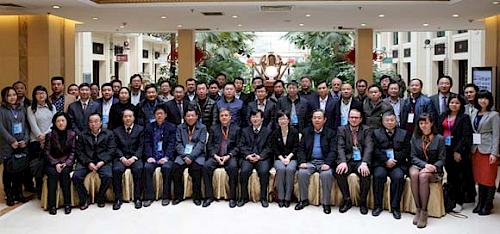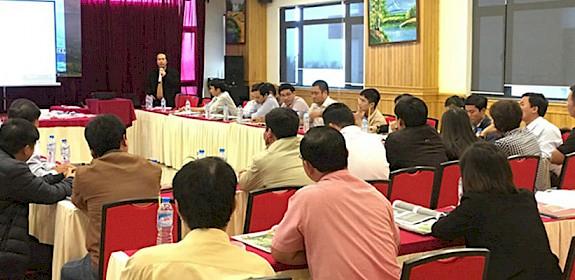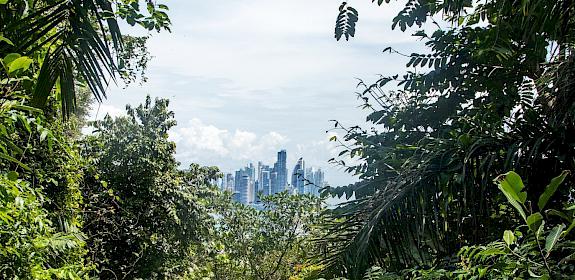TCM sector holds inaugural Corporate Social Responsibility and Sustainability Forum in China
Beijing, China, 4th March 2014—Representatives from 30 Traditional Chinese Medicine (TCM) companies met last month in Beijing to discuss corporate social responsibility (CSR) and sustainability issues in the TCM industry.

It was the first Forum dedicated to CSR held by the TCM sector in China under the theme of "Sustainable development in the TCM industry and supply chain management" and as such, was hailed as a significant moment in the industry’s development there.
Jointly organized by TRAFFIC, the China Medical Pharmaceutical Material Association (CMPMA), the World Federation of Chinese Medicine Societies (WFCMS), and China Wild Plant Conservation Association (CWCA), China’s TCM Corporate Social Responsibility and Sustainability Forum attracted participation from more than 70 representatives from TCM companies, academia and NGOs.
The Forum was a direct outcome of TRAFFIC’s collaboration with the TCM industry to promote sustainable harvesting and trade in medicinal plants and support sustainable supply chain management in the sector within the project ‘Engaging the Private Sector in sustainable management of medicinal plants – the multiplier effect (EGP-MAPs)’ launched in November 2013. Delegates focused on issues relating to industry Standards and the sustainability of domestic and international supplies of medicinal plants, including supply chain traceability and transparency.
TRAFFIC highlighted sustainability issues in the supply chain for wild-harvested medicinal plants species used by the TCM industry.
“The work by TRAFFIC and its project partners focuses on three levels: sustainable harvesting practices of wild medicinal plants; well-managed and transparent supply chains; and good manufacturing practices that focus on quality control and traceability—they are all part of TRAFFIC’s long-term commitment to the protection of wild medicinal plants worldwide,” said James Compton, TRAFFIC’s Senior Programme Director for the Asia-Pacific region.
Other presentations were made by representatives from the European Union (EU)-China Environmental Governance Programme (EGP), CWCA, the International Trade Union of Genuine Regional Materia Medica (TUGRMM), and the State Administration of Traditional Chinese Medicine of the People’s Republic of China (SATCM).
Huang Xueju, EGP Project Manager spoke about an EUChina EGP Programme and the fit of the objectives of EGP-MAPs in sustainable management of medicinal plants project with the overall goal of EGP’s priorities, and of the collective need for communicating and sharing issues surrounding corporate social responsibility (CSR) by industry stakeholders.
Deputy Sectary General Song Xianshui from the TUGRMM spoke of members’ interests in establishing a TCM green supply chain, optimizing CSR strategy, achieving ethical sourcing, protecting natural resources, and supporting local societies. It is planned that the Forum will continue as an initiative of TUGRMM beyond the project lifetime.
Anastasiya Timoshyna, TRAFFIC’s Medicinal Plants Programme Leader introduced the EGP MAPs project, which is implemented in Zhejiang and Hunan provinces with selected TCM manufacturers and traders between 2013 and 2015. The project uses FairWild Standard principles to support the establishment of sustainable supply chains for wild collected medicinal plants. The Chinese version of the FairWild Standard, a tool that provides guidance for sustainable and fair trade collection of wild medicinal plants was presented at the Forum.
“Following its successful application within a number of countries, TRAFFIC firmly believes the FairWild Standard could become a guideline for sustainable development and strategic management of corporate social responsibility within China’s TCM industry,” said Timoshyna.
TRAFFIC is currently working with manufacturing and trading companies in China to establish a baseline that will lead to the development of a roadmap for improving sustainability of TCM supply chains. The EGP MAPs project will also support the companies to establish CSR frameworks, and contribute to the establishment of enabling environment for sustainable practices through the facilitation of dialogue between industry and government.
 This communication has been produced with the financial assistance of the European Union. The contents of this communication are the sole responsibility of TRAFFIC and can under no circumstances be regarded as reflecting the position of the European Union.
This communication has been produced with the financial assistance of the European Union. The contents of this communication are the sole responsibility of TRAFFIC and can under no circumstances be regarded as reflecting the position of the European Union.



